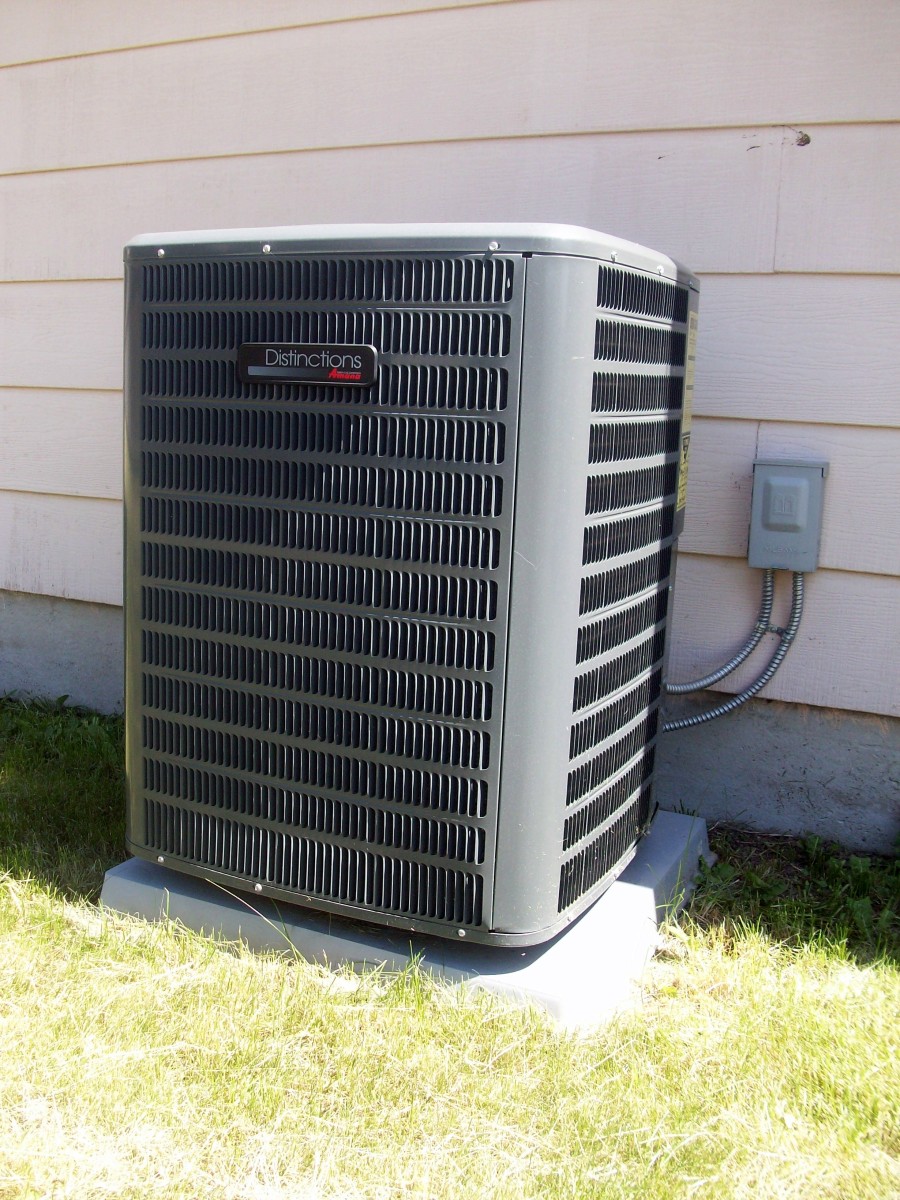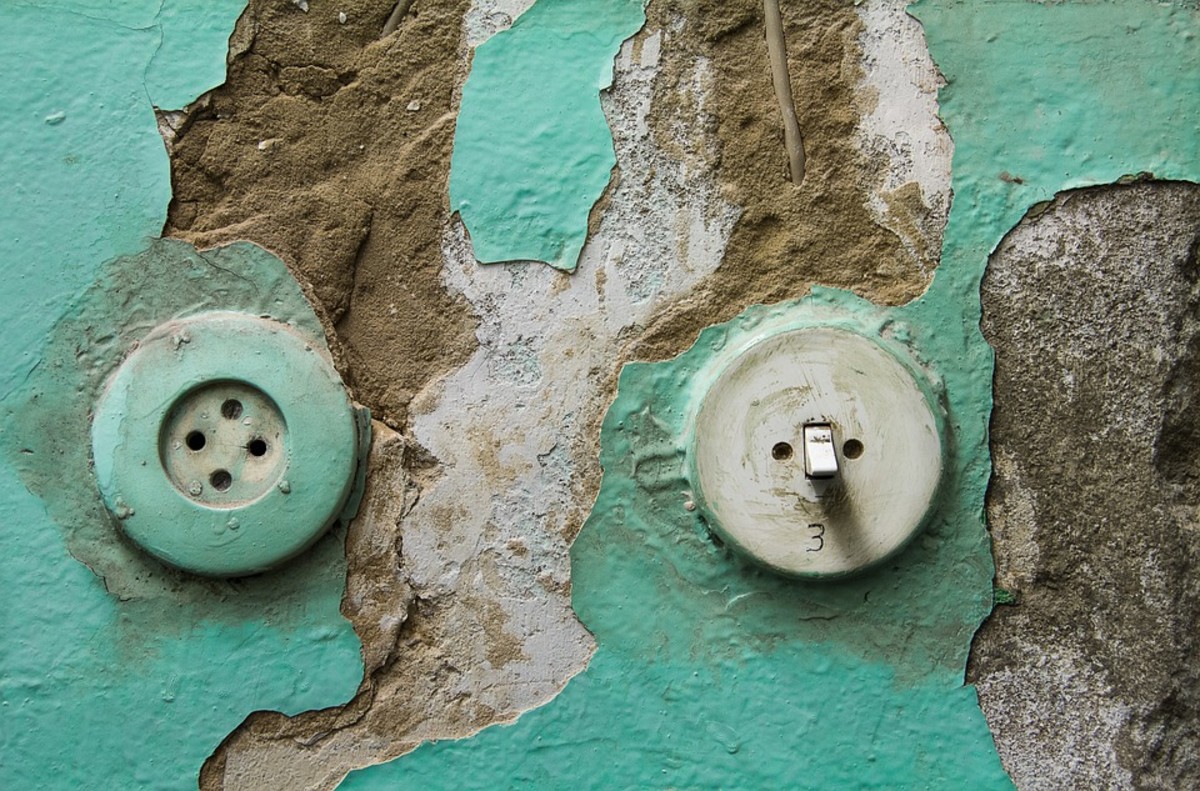Environmental Living in an Apartment
Apartment Living and Environmental Conservation

How to Save Electricity and Water in Your Apartment
Some people have the mistaken idea that you have to own a home in order to take steps to conserve energy and protect the environment. This is far from the truth; being environmentally conscious is a matter of how you live, not where you live!
Although you may have little control over the types of appliances installed in your apartment or rental home, or the way the building is insulated, you have complete control over how you monitor and use resources. You can make easy choices each day that will save money and also help save the planet.
The financial savings may surprise you, once you do a quick assessment of your apartment, your daily habits and how much energy can be saved. You can also Go Green by reducing your use of chemicals and pollutants.
Here are some easy ways to embrace the environment in apartment life.
How Green are you? Take this short quiz and see!
view quiz statisticsRecycling Means What You Discard Gets Used Again
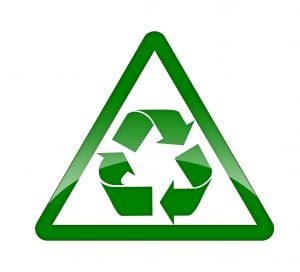
How to "Buy Green," and how to recycle
Be sure to look for Green choices in paper products, light bulbs, small appliances and electronics. And don't forget to recycle paper, plastics and metal!
Light Bulbs: Immediately remove all bulbs that came in the apartment (unless they're energy savers), and store them in a box. Then install energy-saving bulbs in every possible outlet. Usually, they will be covered in some manner, so the unusual look won't be noticeable. These bulbs last a long while, and you can take them with you when you leave (just replace the ones that were in light fixtures before your inspection - because you saved them, remember!). My electric bill dropped noticeably when I switched the bulbs in fixtures I most commonly use.
Paper Products: Look for recycled materials, if possible, when you buy paper towels, toilet tissue, facial tissue and drawer liners.
Appliances: Look for Energy Star labels on any appliance you buy. These are certified to use less electricity, and they're so common now that they don't cost any more than other appliances. They conserve energy through better design, less warm-up time, automatic shut-offs and other features.
Bigger appliances (washers and dryers, if your unit has hook-ups), come with bigger savings and sometimes even come with rebates. Front-loading washers save a tremendous amount of water and also save on drying time, because they spin more water out of the clothing. Look for dryers with sensors that will shut off automatically when they 'feel' the clothes are dry.
Electronics: When you buy any new toy (your next phone, a printer, anything), look for an Energy Star label. Older printers used huge amounts of electricity to warm up or cool down before and after use, all of which was basically wasted energy. Be sure to unplug chargers when not in use - they still drain a tiny amount of energy, even when not charging; if multiplied times millions of cell phones, it adds up.
Recycle! Naturally, you'll want to recycle everything on a regular basis. If you have separate bins in your kitchen or utility area, it becomes second nature to toss garbage in one bin and recyclable material in the other. If your apartment complex doesn't yet have recycle bins, encourage them to get involved. Perhaps you can take your bottles, cans and papers to a neighborhood recycling spot, or even to your office, if you're not able to recycle where you live.
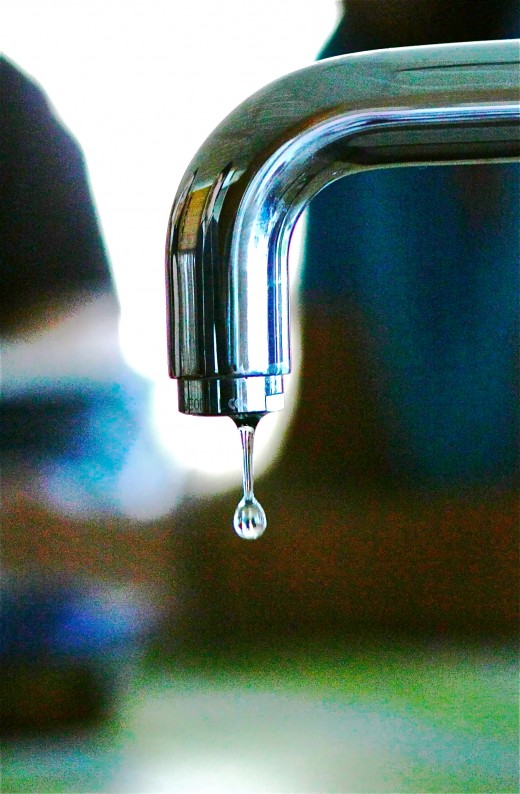
Best Ways to Save Water
Saving water is one of the easiest things to do, and it's also one we overlook in our daily habits. You can make simple changes that will save many gallons of water. In some areas, water is supplied as part of the rent, which is a nice benefit, but can often seduce people into thinking they can use it liberally and it doesn't matter.
It does matter, though, because the more water tenants use, the higher your rents will go when it's time to renew. And, worst of all, the harder the impact on the environment. Many parts of the world are facing water shortages, so conservation is important for everyone.
Some simple steps:
Washing dishes: Fill the sink with a shallow amount of water, and use that to pre-rinse dishes before loading the dishwasher. If you wash by hand, fill another basin with water for rinsing rather than running the tap the entire time.
Shaving and Brushing Teeth: If you shave over the sink, fill it with hot water and dip the razor into it rather than running the faucet the entire time. Consider shaving in the shower, where your skin will already be moist and softened. When brushing your teeth, fill a glass with water and use it to rinse your mouth and the brush.
Baths: Bathing in a tub typically uses more water than running a shower (especially if you have water-saving shower heads). Baths are luxuries in more ways than one - don't feel you have to give up that sensuous, sudsy soak, but take a few more showers now and then to save water, if possible.
Showers: Try timing yourself to see how long you typically stand under the running water, then set a goal of reducing the average time by a few minutes. If you save two minutes a day, and you shower daily, that's more than 12 hours of shower time a year. Quite a bit of water down the drain, when you think about it.
Laundry: Fill your washer only to the appropriate water level for each load (and try making your loads larger rather than doing small loads). Wash in cold water rather than hot or warm for most loads to save further energy with your water heater.
Green Apartment Complex - Eco Building!
Electric fans save money and use less energy than an air conditioner
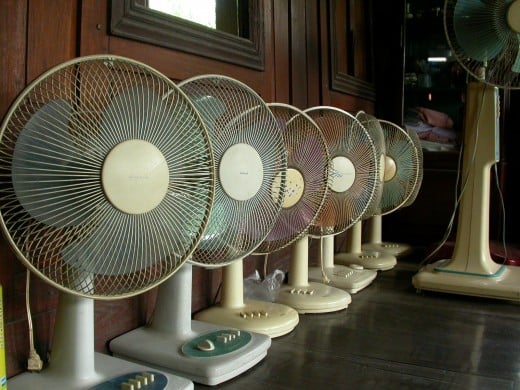
How to Save Energy and Lower Your Utility Bills
If you're in a rental unit with shared walls, you're particularly fortunate when it comes to saving energy (and money) on heating and cooling. This means you have an automatic barrier of insulation on the sides protected by other units, or even those that face interior hallways or entry ways.
We spend most of our lives in controlled environments, and quite honestly, the temperature levels considered 'comfortable' are almost out of control. The same people who happily jog or play golf for hours in 80-degree weather insist on setting the thermostat at 68 degrees when they go indoors.
Similarly, when winter hits, you'll find people commenting on what a warm day it is when thermometers hit 60 degrees, and yet they will freeze to death if the thermostat is set that low at night.
The way to adapt yourself to more sensible (read: environmentally friendly) settings is to go about it slowly. Don't make a 10-degree adjustment in either season and expect it to feel anything other than too hot or too cold. It's human nature to want to change dramatically, and then immediately decide that's not for you, so you switch back to the old ways (this is true in diets as well as in setting the thermostat).
Instead, adjust your thermostat a few degrees above or below what you normally would choose for that particular season. If you're used to a frigid 68 degrees in the summer, let it creep up a few degrees every day or so. Many people find they can be comfortable at 78 degrees, once they try it for a short time. This is especially true for those who find themselves shivering in theaters or restaurants. Why subject yourself to unnaturally chilled air?
In the winter, wear a sweater or sweatshirt, some cozy socks, and start lowering the thermostat a few degrees at a time. You may find (as I did, to my own surprise), that 60 degrees is actually quite comfortable in most circumstances.
Buy a Fan! Such a simple solution, and one that will make you feel so much cooler, all summer long! If you move from the apartment, you can take it with you.
Programmable Thermostats: Perhaps your apartment has installed these amazing devices; if so, you are doubly fortunate. If the programming puzzles you, ask the maintenance staff for a brief how-to session, then adjust the settings according to the guidelines given by your local utility firm (which generally will be on board with the idea of saving energy).
If you do not have a programmable thermostat, mention this idea to the owners or managers as a cost-savings feature for the future. Some utility companies will install them for free, even in multi-family dwellings.
The savings for taking these steps can vary greatly with the age of your heating and cooling units, the size of your apartment and whether it has good weather stripping and insulation. However, you will indeed notice a drop in your bill (sometimes a dramatic drop), and you will likely find you haven't sacrificed comfort through changing your habits.
Proper Use of Blinds and Draperies: Be sure to close your draperies in warm weather and open them in cooler weather. This will keep the heat inside during the winter and will avoid having the sunlight heat up your cooled air during the summer.
Solar Film: If you plan to be in the apartment for a long while, and if you find an uncomfortable amount of heat comes in through the windows, consider investing in solar film for large windows or patio doors that have southern or western exposures. It might be possible to get the owner to install the film, but either way, you should get permission to put it in.
If you have single-paned windows, you will notice an immediate and dramatic drop in the temperature. Good films vary in cost, but can pay for themselves in just a few months of warm weather.
Use spray pumps rather than aerosols; they're safer for the environment
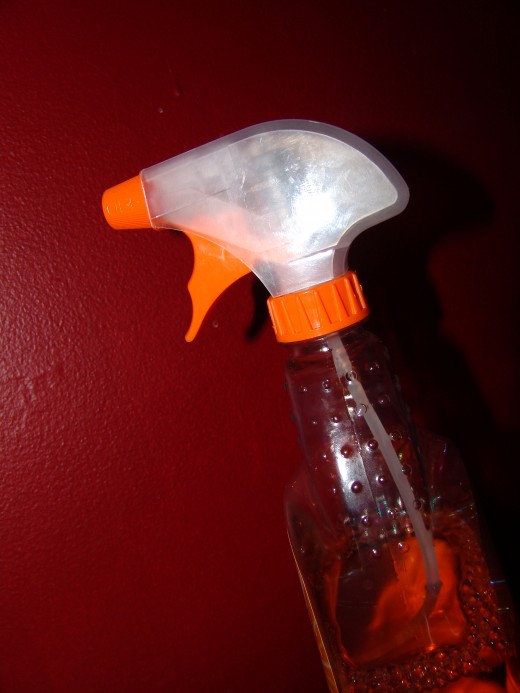
Always look for eco-friendly and biodegradable products
Buy Green Cleaning Products
One important (and easy) way to Go Green in your apartment is to use non-polluting products when you clean. Here are some tips and ways to stay green:
- Use Biodegradable Laundry Detergent: This type of detergent will clean your clothes just as well as soaps with harsh chemicals, and the residue going down the pipes won't harm the environment. Some products are actually cheaper to use than other detergents because you use far less. In fact, unless your laundry is in mud, stained, or smells badly of body odor, you probably need only a tiny bit of detergent to get it clean and sweet-smelling again.
- Use Biodegradable Cleansers: These are easy to spot in the household department. Most are clearly marked and state that they are biodegradable cleaning products and don't harm the environment. The products clean generally perform well for cleaning surfaces (floors and counters) and even bathroom cleansers do the trick.
- Avoid Harmful Aerosols: Look for pump-sprays rather than pressurized cans that emit harmful vapors into the air (and eventually into our ozone layer).
- Go Easy on Bleach: You may need to use bleach now and then (we all do), but use it sparingly to avoid fumes as well as to prevent further pollution if it is flushed down the toilet or rinsed down the sink.
- Clean With White Vinegar: This is one of the cheapest, least-offensive cleansers you can use! A bottle costs only pennies (compared to expensive commercial products). Dilute it with water, put it in an recycled spray bottle and use it to clean your counters, stove, sink and other surfaces. The vinegar cuts grease and the slight odor evaporates harmlessly in a matter of minutes.
- Avoid Scented Sprays and Cleansers: Scents are fun, up to a point, but do you really need those extra fumes in your apartment or house? The biggest offenders are scented room fresheners in pressurized aerosol cans, which basically give you a double-dose of potentially polluting vapors.
A Final Word: Report maintenance problems immediately!
Do you have a leaky faucet? Does your toilet run longer than it should? Does any other appliance or fixture show signs of needing repair?
Report these problems promptly, and if they're not fixed in a timely manner, report them again and mention that you've already requested a work order. Even small drips can use many gallons of water over a period of time.
Your apartment manager doesn't know the small things you might notice in your daily life, and it's your jobs to report anything that needs to be repaired. In some cases, reporting a faulty appliance may save you money (if it's the apartment refrigerator, for example, and you pay the electric bill).
If an appliance or fixture needs to be replaced, ask whether they have energy-conserving options. Chances are, they're already thinking this way, but if not, you might raise awareness and help them go that direction in the future.



